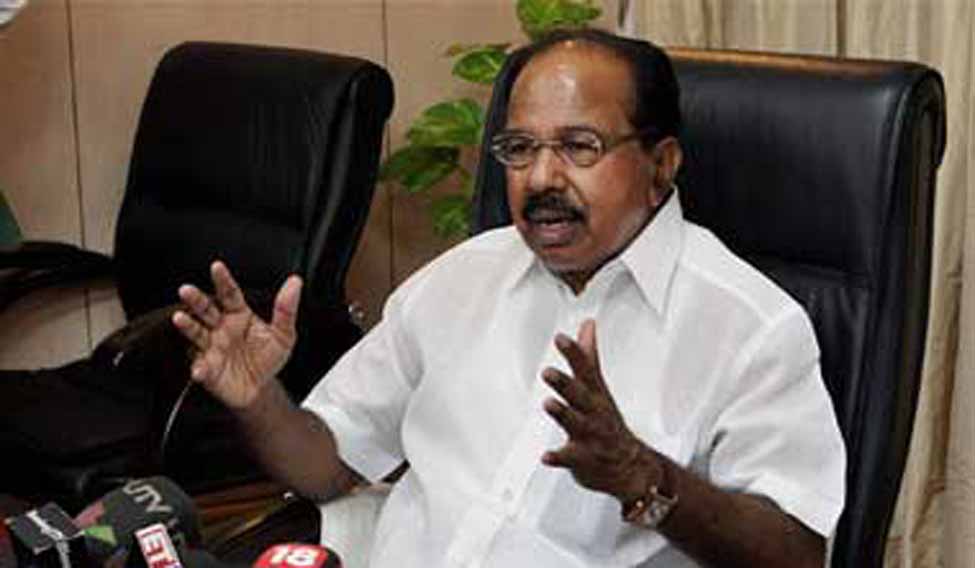Former Union Law Minister M. Veerappa Moily has, so far, counted 38 taxes, including 29 state taxes, that would remain outside the ambit of the proposed Goods and Services Tax (GST).
"One nation, one market, one tax would be a myth even after the implementation of the new tax regime," he said, in the backdrop of the unanimous approval of enabling constitutional amendment for the GST by both the Houses of Parliament.
In an interview with Malayala Manorama, Moily disagreed with the idea of a grievance redressal mechanism controlled by the GST Council. A non-judicial mechanism, manned and operated by the Council wouldn't stand the scrutiny of the law, he cautioned.
Excerpts:
Initiating the debate in Lok Sabha, you had observed that the common man in the country would be the casualty of the GST. Could you explain?
In a tax system where two of the three stakeholders win, the third will have to be the loser. In the government's calculation, it is a win-win situation. Gain for the Centre, gain for the states. The casualty will be the common man.
States demand more tax rate and that is natural as every state would like to maximise their revenue. The Centre, too, would like to do the same. Both are adequately represented in the GST council. But, there are no experts or independent economists representing the people of the country. Nobody is there to represent the manufacturers, too. That is why I believe that a potentially inflationary GST is in the offing.
But, the GST has been in the making for long and there has been a lot of discussion on every aspect of it...
Strangely, that hasn't helped the government. They haven't done proper homework and utilised the institutional memory to their advantage. If you have a high rate of the GST, there will be high inflation. Further, the number of taxes outside the ambit of the GST will add to the boiling pot of inflation.
A few listed products like alcohol are outside the ambit of the GST...
Not just a few. I did a count before the debate (in the Lok Sabha) and found at least 38 taxes, including 29 state taxes, would remain outside (the GST). One nation, one market, one tax is just a slogan.
But, don't you think letting the judiciary interfere in tax matters would encroach on the authority of the finance minister?
It is not without reason that the Congress Party has been demanding that there should be an independent grievance redressal mechanism under the chairmanship of a senior judge. There will be disputes between the Centre and a state or a number of states or between the states. You can't be the complainant as well as the arbitrator. An internal mechanism administered by the Council will not stand judicial scrutiny.
Based on the finance minister's reply in both the Houses, it is clear that the government may not go by the Chief Economic Adviser's report on the standard rate (of 18 per cent)...
Just look at the demonstrations happening in Malaysia and you have the answer to that. Malaysia implemented the GST last year and is now reeling under inflation. That too after enacting an anti-profiteering law along with the GST. You have to learn lessons from international experience.
It is always better to start with a lower rate in every (new) taxation. It won't be easy to reduce it later. On the other hand, if you start at a low rate, you will be at liberty to increase it to the optimum. I am saying this from my personal experience in implementing value added tax (VAT) in Karnataka (Moily was the chief minister of Karnataka during 1992-94).




